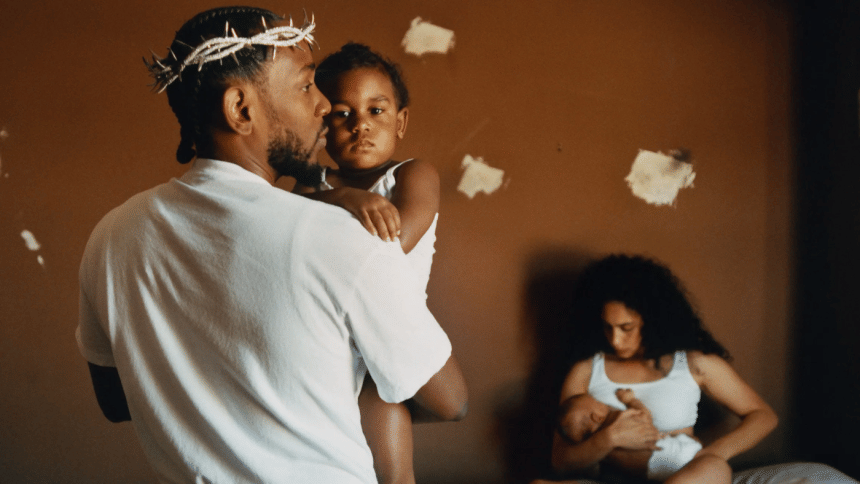Into the mind of Kendrick Lamar with Mr. Morale & The Big Steppers

After five years of ardent anticipation since DAMN., the Pulitzer and multiple Grammy Awards winning artist Kendrick Lamar came out with his fifth studio album "Mr. Morale & the Big Steppers".
The album was released with two nine-track sides and production from a wide variety of musicians across sounds and genres, including Lamar's frequent collaborators Sounwave and Dahi, as well as the songwriting trio Beach Noise, veteran hip-hop producer the Alchemist, Pharrell Williams, and others.
The album also includes appearances from vocalists Sampha, Summer Walker, Blxst, and most surprisingly, Beth Gibbons of trip-hop pioneers Portishead. Actress Taylour Paige and rappers Baby Keem, Ghostface Killah, and Kodak Black adorn the album with appearances as well.
Throughout his career, Kendrick has never been one to relinquish control. As a hard-hitting rapper in the industry, Kendrick himself is a victim of all the stereotypes that come with fame and glory. Although in his previous works he personifies himself as a prophet-like figure, with Mr. Morale & the Big Steppers, the rapper takes a chance to be human – vulnerable, in denial of facing his own truth and the ability to let go.
The album takes his listeners through a journey of his own self-reflection, breaking down the myth of the persona that's been created over the years. And to do so, the dramatist packs his music with complicated viewpoints, personifying his various characters and muses with distinct voices, cadences, and rhythm shifts – giving life to the story he's about to tell.
Mr. Morale begins with "United In Grief" – a song that starts off with a gospel, almost giving the effect that the rapper is walking into a confession to profess, with a stern voice in the background imploring him to tell "us" something. The voice mutes on the piano key, and Kendrick calmly enters with the verse "I've been goin' through somethin'/One thousand eight hundred and fifty-five days" — the number of days since DAMN. Dropping the subtle hint, Kendrick unleashes a stream of thoughts on a conscious flow cutting through the corners of his mind that he keeps under lock and key.
The album constantly shifts between storytelling and introspection. Kendrick shares his perspectives switching between his two roles – as an artist of the industry and as a black man in the face of a system that is against his race. He unravels the former in "Worldwide Steppers", where Kendrick confesses that he thinks political correctness is stifling hip-hop as he spits the lines – "The media's the new religion, you killed the consciousness/Your jealousy is way too pretentious, you killed accomplishments".
However, the album's greatest highlights in my personal opinion are his most introspective pieces – "Father Time", "Auntie Diaries" and "Mother I Sober" where the artist unravels the complicated, dark, and twisted plights of the black community. "Father Time" opens up with an excerpt of Kendrick's conversation with his partner on taking therapy and the rapper's dismissal of the advice. He paints the picture of the common prejudice against getting mental help within the black community and lays the context by saying, "I come from a generation of home invasions and I got daddy issues, that's on me".
In "Auntie Diaries" he expresses the inhibitions on gender orientation coming from a Christian upbringing and how he had to unlearn all of it growing up.
Kendrick confronts his suffering on the album's penultimate track, "Mother I Sober." In other words, he's addressing it with a clear head as he raps: "You ain't felt guilt until you've felt it sober."
As Kendrick unclenches his grip on his life and his image through Mr. Morale & The Big Steppers, it leaves the listener wondering "Who is Mr. Morale?" – was it the therapist Kendrick was seeing? Was it God? Or was it the personification of all those who were the sufferers of black trauma? Whatever the answer may be, it's safe to say that this album is worth another Grammy on Kendrick's mantle.
Nazifa mostly spends her days wondering what leisure even means. Send her your commiserations at [email protected]

 For all latest news, follow The Daily Star's Google News channel.
For all latest news, follow The Daily Star's Google News channel. 








Comments